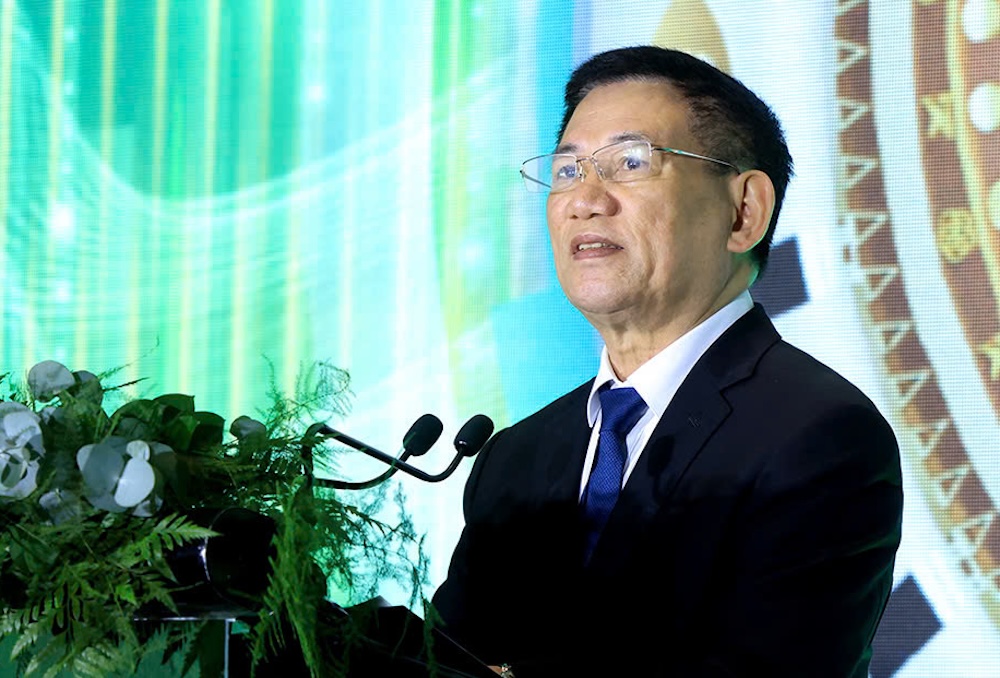Deputy Prime Minister Ho Duc Phoc announced this information at the Vietnam Corporate Sustainability Forum (VCSF) on 22/8. This ranking, conducted by the United Nations Sustainable Development Solutions Network (SDSN), assesses 17 goals across 193 countries.
Vietnam's 2025 sustainable development score reached 73.4 points (out of 100). This represents a 27.4% increase compared to 2015, placing Vietnam second in Southeast Asia, behind Thailand.
Significant improvements were noted in areas such as poverty eradication, clean energy, and affordability. However, some areas remain challenging, including marine resources and environment (48.24 points), land resources and environment (49.26), and industry, innovation, and infrastructure (57.5).
 |
Deputy Prime Minister Ho Duc Phoc at the event. Photo: TTXVN |
Deputy Prime Minister Ho Duc Phoc at the event. Photo: TTXVN
According to the Deputy Prime Minister, Vietnam is a bright spot for sustainable development in the region, while the global 2030 SDG targets are at risk of not being met. Globally, 48% of the targets have not been achieved, 17% have shown no progress, and 18% have declined below the 2015 baseline.
For Vietnam to achieve its 2030 sustainable development goals and Net Zero emissions by 2050, Deputy Prime Minister Ho Duc Phoc urged businesses to accelerate their adoption of innovation and invest in green, sustainable core technologies. This transition will enable businesses to participate more deeply in global value chains with increasingly stringent green standards.
This sustainable development process must be accompanied by social responsibility, environmental protection, and effective governance, thereby building trust with investors, partners, and consumers both domestically and internationally. Simultaneously, promoting circular economy models, the digital economy, and a just energy transition will contribute to realizing Vietnam's climate commitments.
Pham Tan Cong, President of the Vietnam Chamber of Commerce and Industry (VCCI), stated that Vietnam has an opportunity to restructure its economy and transition to a growth model based on knowledge and a high-quality workforce, leading the country towards green development and high income by 2045.
Vietnam is among the 90% of countries globally committed to Net Zero in the coming decades. In many countries, this commitment has been legalized to ensure enforcement, for example, linking trade and investment to carbon reduction, labor, and environmental criteria.
The VCCI President cited a United Nations estimate that if current resource-intensive production and consumption patterns continue, humanity will need three Earths by 2050 to meet its needs.
Thuy Truong












